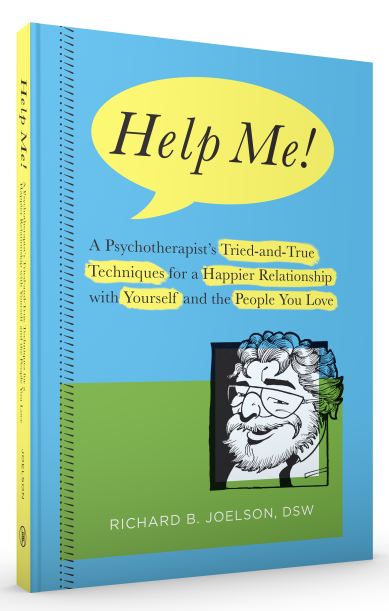 Many people have been living with anxiety or depression for much of their adult lives, if not since childhood. They have had previous therapies that were helpful, enlightening them and contributing information to their quest for self-understanding and improved well-being. Too often, however, clients report that they have acquired a great deal of insight and understanding but have not been able to make some of the changes in their behavior that they originally entered therapy to achieve. One can think of this a being “insight rich” and “change poor.”
Many people have been living with anxiety or depression for much of their adult lives, if not since childhood. They have had previous therapies that were helpful, enlightening them and contributing information to their quest for self-understanding and improved well-being. Too often, however, clients report that they have acquired a great deal of insight and understanding but have not been able to make some of the changes in their behavior that they originally entered therapy to achieve. One can think of this a being “insight rich” and “change poor.”
One reason for this may be that some people see their difficulties as conditions, rather than problems. Conditions, like diabetes, for example, are not solved, cured or eliminated. Instead, they are managed and monitored so that they do not get out of hand. Sometimes this may also be true of one’s depression or anxiety. It can be chronic and difficult to control, and good management and regulation may be the best that one can do.
However sometimes it is more helpful to treat anxiety or depression as a problem, not a condition. A problem, by definition, needs to be solved and, therefore, stimulates action. People tend to become more involved in their therapy when they believe that with help, they can do something about their situation. Seeing one’s situation as a condition might invite passivity that could undermine the motivation necessary to make desired changes.
Comments from clients like, “Well, that’s just the way I am,” “Nothing I can do about that” or, “I’ve been this way so long, I’m sure I can’t change,” often lead to feelings of resignation and defeat. When these beliefs are challenged and reconsidered, a productive therapeutic effort leading to meaningful change is more likely to occur.
Judith, a 42-year-old successful business executive, was referred by her physician because of his concerns about her chronic anxiety and periodic depression. In her first session, she spoke only of her troubled marriage, saying nothing about the reasons her doctor sent her to me. When I asked her about this, she replied, “Oh that! I’m a very anxious person, and I get really depressed. It gets pretty bad at times, but that’s just me.”
When she was helped to see how the “condition” she had simply accepted for so many years could benefit from action toward change, she became intrigued, then hopeful, and better able to work toward becoming a much less anxious and depressed individual.
Psychotherapy and counseling are more effective endeavors when someone is actively engaged in the process, believing that change, where possible, is the objective, and that even difficult and chronic emotional states can be aggressively challenged and changed.
